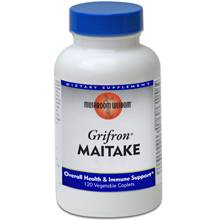“Rhinitis” simply means having a runny nose.
“Post nasal drip” is when it runs down the back of your nose into your throat, instead of out the front of your nose, causing you to have to clear your throat frequently.
Causes
If the runny nose has been present for only a few days, it is generally an infection (like a cold virus). When it lasts over a month, and often from childhood on, there are several key causes:
-
Allergies
This is usually associated with sneezing and clear or white nasal mucus. If it usually recurs for the same few months each year, this also suggests grass or pollen allergies (e.g., grass pollen in spring and ragweed pollen, called “hay fever,” in autumn). If it is year round, allergies to cats and dogs, dust, or molds are common triggers.
Children will also often have what is called the “allergic salute,” where they often rub the bottom of their nose with their fingers. They may also have "allergic shiners," which are dark circles under the eyes that resemble mild bruises from a black eye.
-
Chronic Yeast / Candida Overgrowth
Doctors ignore the research on this and continue to make believe there is no such thing, treating sinusitis with antibiotics—which, of course, worsens the yeast overgrowth in the sinuses and makes the sinusitis become chronic (persistent).
Candida is also a very common cause of post nasal drip.
-
Vasomotor rhinitis
This is an autonomic disorder (not dangerous, but a nuisance), where cold feet hitting the floor in the morning (or later in the day) can trigger a runny nose — so keep a pair of slippers by your bedside. Smells, smoke and other triggers are also common. Gustatory rhinitis is when this is triggered after eating (especially spicy foods).
-
Rhinitis medicamentosa
This is caused by the chronic use of over-the-counter decongestant nose sprays. As they wear off, they cause “rebound swelling.”
Treatment
Review information on sinusitis as the potential cause. Treating Candida can not only get rid of the runny nose, but may clear many other symptoms as well.
- For allergic rhinitis, consider a special acupressure technique called "NAET."
- For dust allergies, your allergist can give a very helpful treatment for your carpets which will kill the dust mites (which cause the allergy), and plastic covers for your pillows and mattresses can trap the dust.
- For vasomotor and gustatory rhinitis, the prescription nose spray Ipratropium (Atrovent) can be very helpful and is low in side effects (but may aggravate glaucoma or slow urination).
-
Recommended Supplements
-
MSM
The supplement MSM (methylsulfonylmethane) 3,000-10,000+ mg a day often settles down many allergies after 2-6 weeks of use (at which time the dose can often be lowered).
-
-
Other Therapies & Advice
-
Sinusitis Nose Spray
I recommend the holistic “Sinusitis Nose Spray” by prescription (from ITC Pharmacy at 888-349-5453). After 1 week, it will often settle down allergic rhinitis or rhinitis from over-the-counter nasal sprays. It is wonderful for most chronic sinusitis, especially when combined with other Candida treatments.
-
Allergy Testing
Allergy skin testing and shots can also help with persistent and severe allergic rhinitis (I would do NAET first — much simpler and less expensive). Over-the-counter antihistamines like Claritin during the day (not sedating) or Benadryl at night (sedating) are also OK.
-





